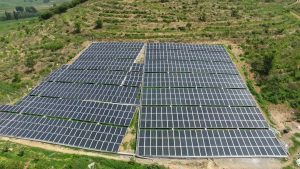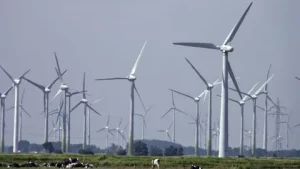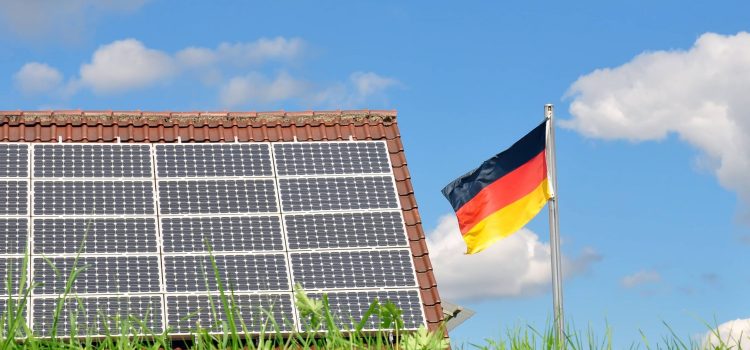
Germany’s renewable energy policies have evolved significantly since the 1990s. Initially, the country focused on reducing its dependency on fossil fuels and nuclear energy. The introduction of the Electricity Feed-in Act in 1991 marked the beginning of a series of legislative measures aimed at promoting renewable energy sources. This act required utilities to purchase electricity generated from renewable sources at fixed prices, which provided a stable and attractive investment environment for renewable energy projects. Over the years, Germany has continuously updated its policies to adapt to new technological advancements and market conditions, ensuring that renewable energy remains a key component of its energy strategy.
Despite significant successes, challenges remain for Germany’s renewable energy sector. One of the main hurdles is the integration of renewable energy into the existing grid infrastructure. The intermittent nature of renewable sources like wind and solar power requires sophisticated grid management and storage solutions to ensure a stable energy supply. Additionally, regulatory and financial barriers still pose challenges for small and medium-sized enterprises looking to enter the renewable energy market. Addressing these issues is crucial for Germany to maintain its leadership in the global renewable energy landscape.
Key Milestones in Germany’s Renewable Energy Adoption
The implementation of the Energiewende policy in 2010 was a pivotal moment for Germany’s renewable energy sector. This comprehensive policy aimed to transition Germany to a more sustainable energy system by increasing the share of renewables in the energy mix, reducing greenhouse gas emissions, and phasing out nuclear power. The Energiewende policy set ambitious targets, such as achieving 80% renewable electricity by 2050 and reducing carbon emissions by 80-95% compared to 1990 levels. This policy has been instrumental in driving investments in renewable energy technologies and infrastructure, making Germany a global leader in the renewable energy transition.
In 2019, Germany reached a significant milestone by achieving 40% renewable electricity. This achievement underscored the effectiveness of the country’s renewable energy policies and investments. Wind power, both onshore and offshore, played a crucial role in reaching this milestone, contributing nearly half of the renewable electricity generated. Solar power and biomass also made significant contributions. Achieving this 40% milestone demonstrated Germany’s commitment to its renewable energy goals and provided a strong foundation for future advancements in the sector.
Technological Innovations Driving Renewable Energy

Advanced solar panel technologies have been a key driver of renewable energy adoption in Germany. Innovations in photovoltaic (PV) technology have significantly increased the efficiency and affordability of solar panels. German researchers and companies have been at the forefront of developing high-efficiency solar cells, such as those based on perovskite and multi-junction technologies. These advancements have made solar energy more competitive with traditional energy sources and have facilitated the widespread deployment of solar panels across residential, commercial, and industrial sectors.
Innovations in wind turbine efficiency have also played a crucial role in Germany’s renewable energy success. German engineers have developed larger and more efficient wind turbines that can generate more electricity from the same amount of wind. Advances in materials science, aerodynamics, and control systems have led to the creation of turbines with longer blades and higher capacity factors. Offshore wind farms, in particular, have benefited from these innovations, as they can harness stronger and more consistent winds found at sea. These technological advancements have made wind power a cornerstone of Germany’s renewable energy strategy.
Economic Impacts of Renewable Energy in Germany
Germany’s renewable energy sector has been a significant driver of job creation and economic growth. The transition to renewable energy has created thousands of jobs in various sectors, including manufacturing, installation, maintenance, and research and development. The renewable energy industry has also stimulated local economies by attracting investments and fostering the growth of small and medium-sized enterprises. Additionally, Germany’s leadership in renewable energy technologies has opened up export opportunities, further boosting the country’s economy.
However, high initial costs pose challenges for Germany’s renewable energy sector. The development and deployment of renewable energy technologies require substantial upfront investments. While the long-term benefits of renewable energy, such as reduced greenhouse gas emissions and lower operating costs, are well-documented, the initial financial burden can be a barrier for many stakeholders. Government subsidies and incentives have been crucial in mitigating these costs, but ensuring the financial sustainability of renewable energy projects remains an ongoing challenge.
Social Acceptance and Public Support for Renewables
Germany’s renewable energy sector enjoys strong social acceptance nationwide. Public awareness of environmental issues and the benefits of renewable energy has been instrumental in garnering widespread support for the transition to a sustainable energy system. Educational campaigns, community engagement initiatives, and transparent communication have played key roles in building trust and acceptance among the public. This social acceptance has created a favorable environment for the implementation of renewable energy projects across the country.
Public support has been a driving force behind Germany’s renewable energy policy advancements. The strong backing from citizens has empowered policymakers to set ambitious renewable energy targets and implement progressive legislation. Public opinion surveys consistently show high levels of support for renewable energy, which has translated into political will and action. This alignment between public sentiment and policy has been a critical factor in Germany’s renewable energy success story.
Environmental Benefits and Sustainability

Germany’s renewable energy sector has significantly reduced carbon emissions. By replacing fossil fuels with renewable energy sources, Germany has been able to lower its greenhouse gas emissions, contributing to global efforts to combat climate change. The shift to renewables has also reduced air pollution, leading to improved public health outcomes. These environmental benefits underscore the importance of continuing to invest in and expand renewable energy infrastructure.
Promoting long-term environmental sustainability is a core objective of Germany’s renewable energy strategy. By prioritizing renewable energy, Germany is working towards a more sustainable and resilient energy system. The focus on renewables aligns with broader environmental goals, such as preserving biodiversity, conserving natural resources, and promoting sustainable land use practices. Germany’s commitment to renewable energy demonstrates a holistic approach to environmental sustainability that can serve as a model for other countries.
Challenges and Future Outlook for Germany’s Renewable Energy
Integration issues in Germany’s renewable energy grid present ongoing challenges. The intermittent nature of renewable energy sources like wind and solar requires advanced grid management and storage solutions to ensure a stable and reliable energy supply. Upgrading the grid infrastructure and developing efficient energy storage systems are essential for addressing these integration challenges. Additionally, coordinating energy production and consumption across different regions and sectors is crucial for optimizing the use of renewable energy.
Looking ahead, future technological advancements in Germany’s renewable energy sector hold great promise. Continued research and development in areas such as energy storage, smart grids, and advanced renewable energy technologies will be key to overcoming current challenges and achieving long-term sustainability goals. Innovations in battery storage, for example, can provide more reliable and efficient ways to store excess renewable energy for use during periods of low production. Similarly, advancements in digital technologies can enhance grid management and enable more effective integration of renewable energy sources. As Germany continues to innovate and invest in renewable energy, it is well-positioned to maintain its leadership in the global renewable energy transition.










